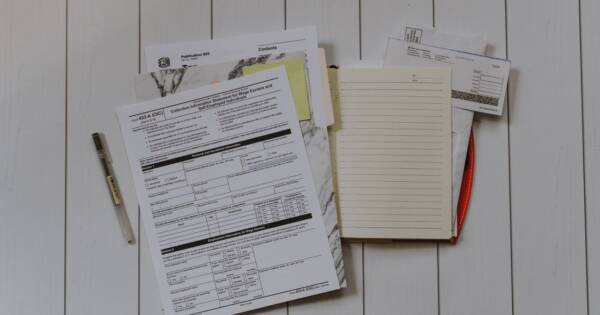Many people sell property they no longer need, like a used vehicle, business equipment or heirloom jewelry. If the item is of value, a bill of sale is an important part of the transaction because it shows that ownership of an item is transferred. A seller can print a bill of sale form and customize it for the purchase. This guide explains the purpose of a bill of sale and the information it should contain to protect both the buyer and seller.
What Is a Bill of Sale?
A bill of sale is a written document that confirms that a buyer and seller agree to a transaction and that rights to the property are being transferred. It details information about the buyer, seller, property, price and any restrictions on the sale.
Why a Bill of Sale Is Important When You Sell Property
The bill of sale protects both parties:
- The seller no longer has rights to and isn’t responsible for the property.
- The buyer is the confirmed owner and assumes all responsibilities and benefits of the property.
Buyers who want to deduct expenses for tax purposes or to insure property also need a bill of sale.
It’s good practice to draft a bill of sale whether you’re selling to a stranger through an online marketplace or to someone you know well, such as a friend or relative.
What Kind of Property Needs a Bill of Sale?
A bill of sale is needed when you sell property of value, including:
- Vehicles
- Trailers and RVs
- Boats
- Jewelry
- Artwork
- Electronics
- Computers
- Business equipment
- Sports memorabilia
- Collectibles
- Animals and livestock
A bill of sale is not used for selling real estate or land, which requires more complex legal documentation.
There are certain legal requirements when selling your car, so check into any state laws through your local Department of Motor Vehicles.
Types of Bills of Sale
There are two types of bills of sale.
1. Absolute Bill of Sale
An absolute bill of sale has no conditions or restrictions. It’s typically used to sell property as-is and paid for in full.
2. Conditional Bill of Sale
A conditional bill of sale is used when there are restrictions on the purchase. For example, the buyer may not receive full ownership until all payment instalments are made, or the seller may agree to take the property back during a certain period of time.
How to Draft a Bill of Sale
Once you’ve found a buyer and negotiated the price and terms of the purchase, you’re ready to draft the bill of sale.
1. Gather Information
Here’s a list of basic information that’s often used in the document, although your bill of sale can be as simple or detailed as needed for your situation.
Buyer and Seller Information
Item Description
Warranties
State clearly whether the property is being sold as-is or with a warranty. As-is means the seller isn’t responsible for defects that aren’t immediately apparent and that the buyer must ensure they’re satisfied with the property before purchasing.
Be clear on any conditions on the sale. Depending on the situation, a seller may be willing to cover certain repairs or accept the return of the property during a defined period of time.
Price
Effective Date
2. Draft the Bill of Sale
A bill of sale is typically prepared by the seller. For convenience, you can print a bill of sale form from a website and complete the sections by hand. Some sites offer templates you can download and customize on your computer.
Be sure to print two copies of the bill of sale for execution.
3. Sign the Bill of Sale
The seller should wait until receipt of payment to sign the bill of sale. Some states also require the buyer’s signature. Even if it’s optional in your location, it can be included as additional protection.
Generally, you don’t require a third-party witness to sell property although this varies by state. Some states may require a bill of sale to be certified by a notary public, particularly for a vehicle, so check your local laws.
4. Keep a Copy of the Bill of Sale
Once the bill of sale is drafted and signed, both the buyer and seller should keep a copy for their files.
What’s the Difference Between a Bill of Sale, Purchase Agreement and Receipt?
Other types of documentation may apply when you sell property.
A purchase agreement is used when both parties agree to a future transaction – perhaps the seller requires time to prepare the property for purchase or a buyer needs to arrange financing. A purchase agreement ensures both sides are committed to the transaction at a later date. Printable purchase agreement forms are available online.
A receipt acknowledges that funds have been received. It may or may not describe the item sold. A receipt may be enough when a payment instalment that’s described in the bill of sale or purchase agreement is received.






